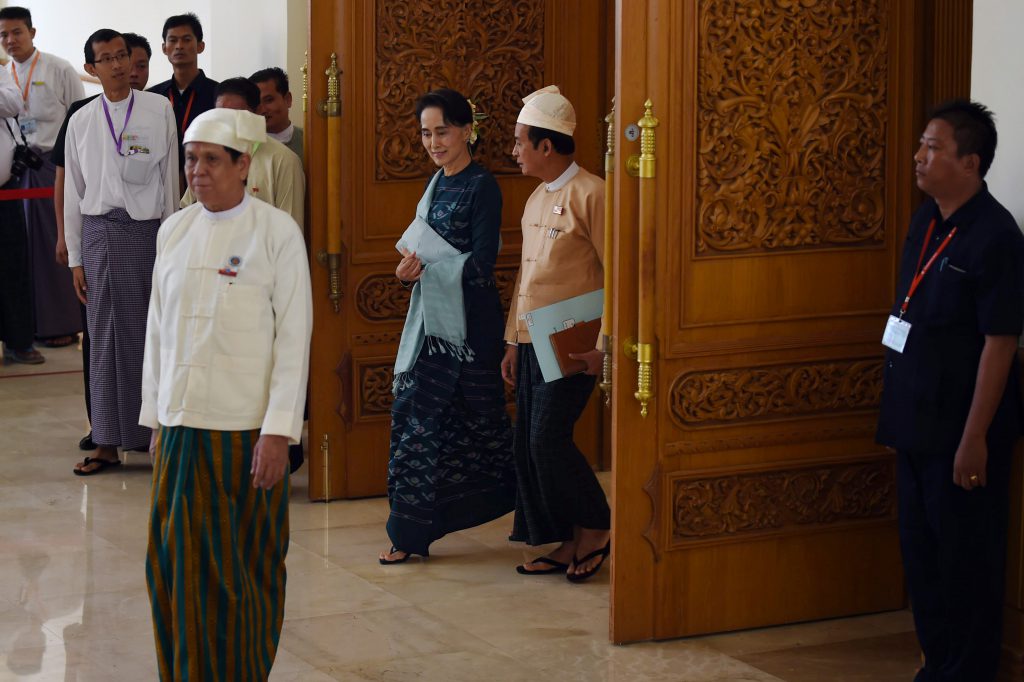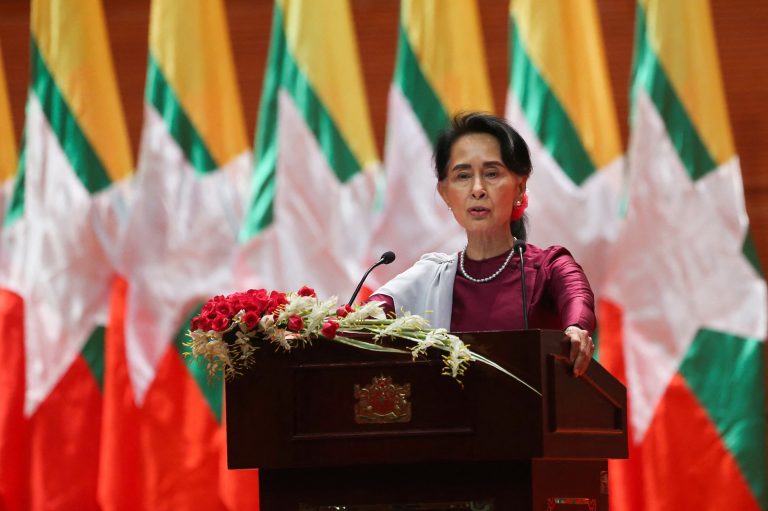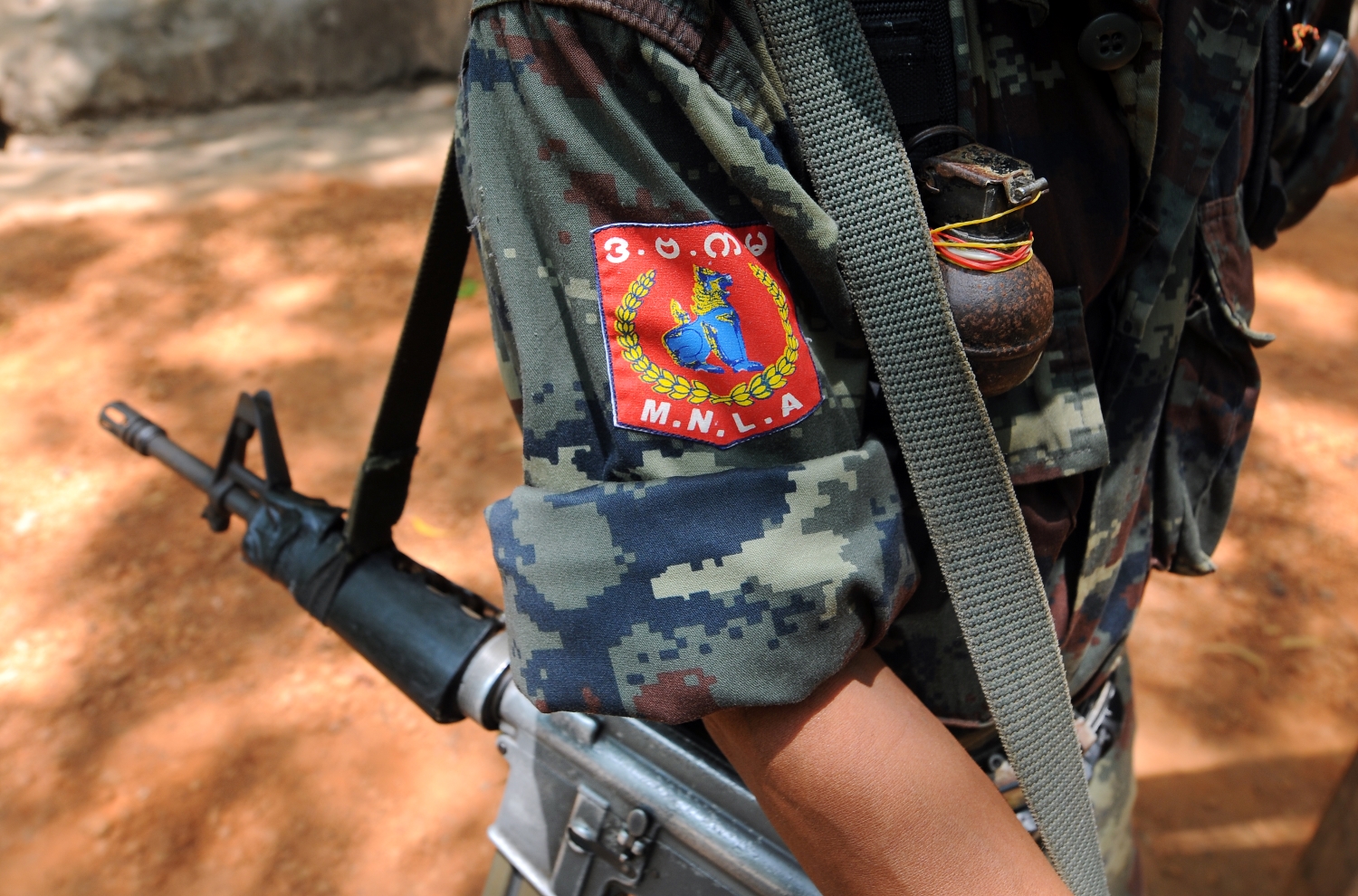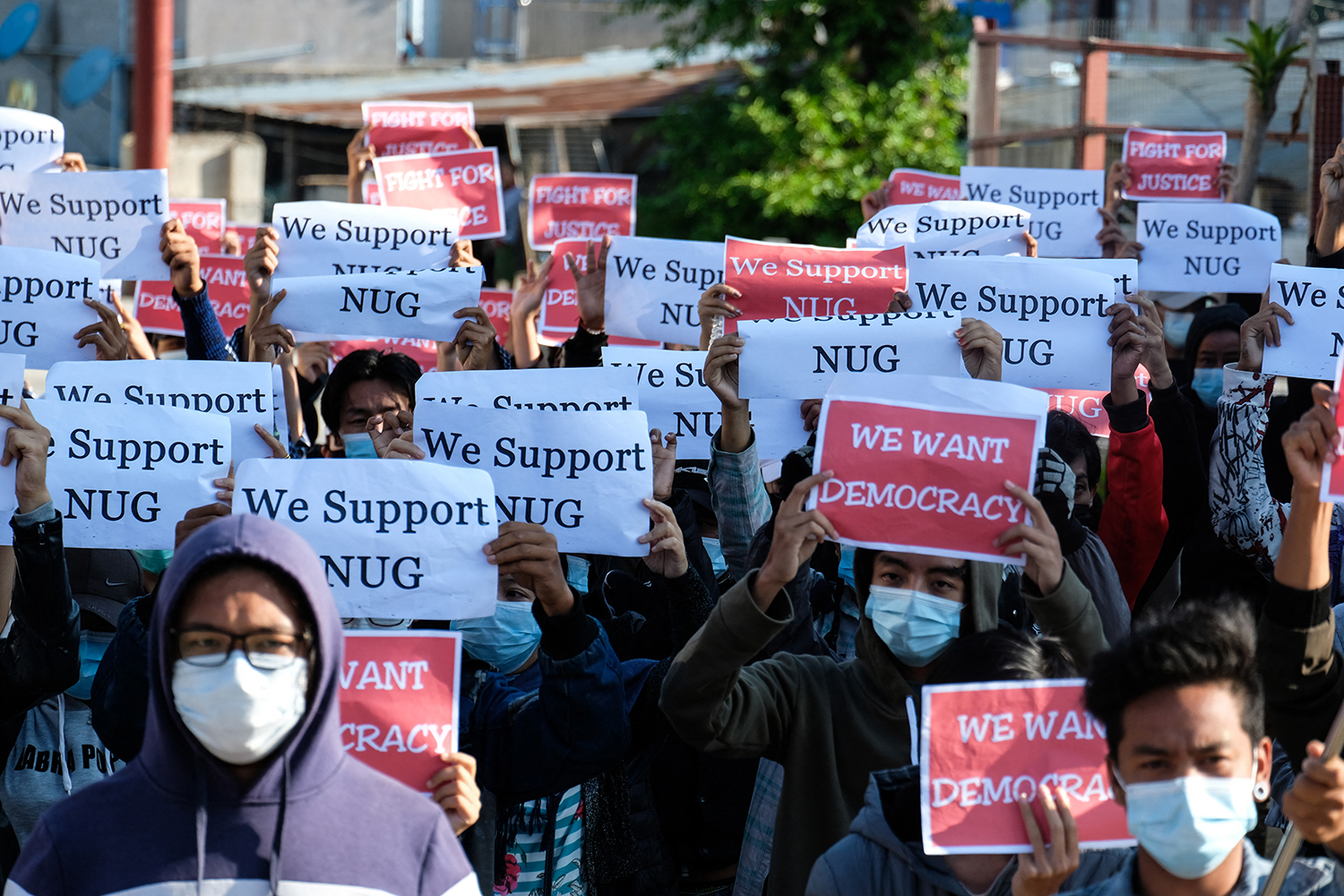The National League for Democracy’s preparations have left Daw Aung San Suu Kyi the option of taking the Foreign Minister role, if she wants it.
By SITHU AUNG MYINT | FRONTIER
How prepared will the NLD-dominated hluttaws, the NLD party and the NLD government be on April 1 to face the challenges ahead? Will they be able to bring peace and prosperity to the country in cooperation with the Tatmadaw?
NLD leader Daw Aung San Suu Kyi said after the November election that she would make all decisions in the new government. However, under the 2008 Constitution, if she takes a cabinet position to lead the government she will have to relinquish her management of the hluttaws and the party. To do that she will need to be careful with appointments in the hluttaws. Let’s see what she has done.
Daw Aung San Suu Kyi appointed NLD central executive committee member U Win Myint as Speaker of the Pyithu Hluttaw and U Mann Win Khaing Than as Speaker of the Amyotha Hluttaw. But she did not seem to feel assured, so she appointed her confidant and ally, former Speaker Thura U Shwe Mann to head a Union-level commission, enabling him to provide support for the speakers. The Commission for the Assessment of Legal Affairs and Special Issues to which Thura U Shwe Mann was appointed was created by him after the previous parliament convened in 2011. The commission has been given greater authority, and has 35 members, more than any other similar parliamentary body.
The NLD leader’s appointment of the former Speaker to head the commission will enable Thura U Shwe Mann to control the Union Parliament behind the scenes. An important consideration is that, as Daw Aung San Suu Kyi intends to become a cabinet member she will not be able to hold meetings with senior NLD members, including U Win Myint and U Mann Win Khaing Than. But she can meet occasionally with Thura U Shwe Mann, who is not an NLD member, and send messages to the Hluttaw through him.
The appointment of the former Speaker to head the commission was a critical, strategic move by Daw Aung San Suu Kyi. During the term of the outgoing government, Thura U Shwe Mann in his capacity as Speaker was able to organise Union Solidarity and Development Party MPs and challenged the faction headed by President U Thein Sein.
The split in the USDP, and the factional politics that resulted in the ouster of Thura U Shwe Mann as its chairman last August, were among the reasons for the party’s crushing defeat in the November election. Now that the NLD leader can direct the Union Parliament through Thura U Shwe Mann, she is less likely to lose touch with party members in the Hluttaw.
Daw Aung San Suu Kyi is going to lead the government, so according to constitutional restrictions she cannot play a direct role in leading the NLD. Although the NLD is unlikely to meet the same fate as the USDP, other challenges may emerge. Daw Aung San Suu Kyi has not delegated anyone to act on her behalf but has arranged for a group of NLD stalwarts to lead the party on her behalf.
This group of five “secretaries” includes such veteran party members as U Win Htein, U Win Myint and U Nyan Win. She will be able to send messages to the group through Thura U Shwe Mann via U Win Myint. This will ensure that Daw Aung San Suu Kyi will not lose touch with the parliamentary party.
Although she cannot be president or a vice-president, as a cabinet member she could have broad control because the constitution does not stipulate the number of ministries for which a minister may be responsible. If she takes the position of foreign minister she will automatically become a member of the National Defence and Security Council, which will provide opportunities to meet the Tatmadaw Commander-in-Chief.
If Daw Aung San Suu Kyi can control the hluttaws, party and government she will be in a strong position to make any changes in appointments that may be necessary in future. Even the president, if unsatisfactory, can be replaced. What is important is the ability of the NLD government and the Hluttaw to bring peace and development and to cooperate with the Tatmadaw.







